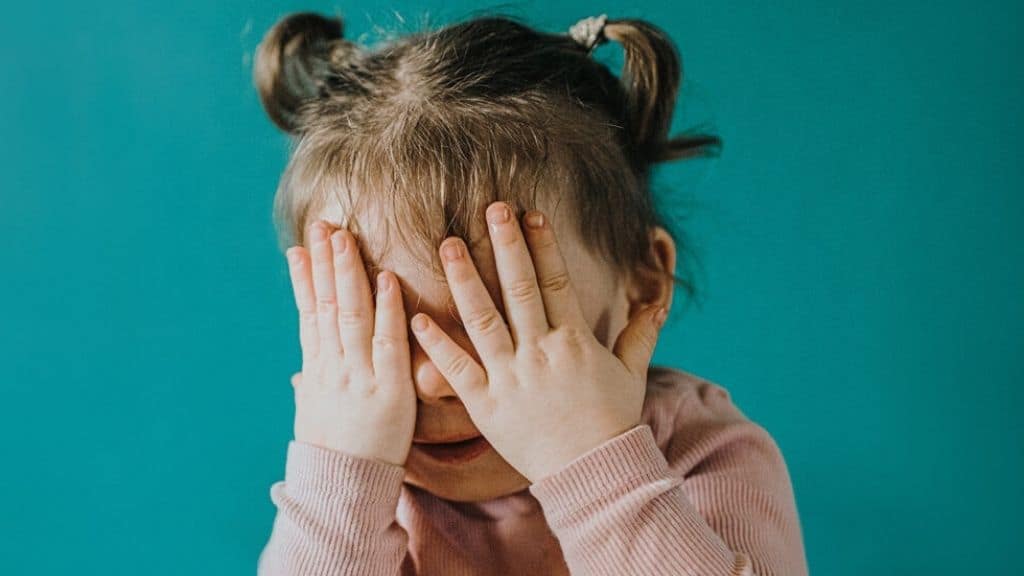
Table of Contents
Seeing a toddler hitting their head on the floor can be upsetting and at the same time surprising for parents to see. In most of these cases, toddlers hitting their heads is occasional and nothing to worry about as it is most likely to be a sign of self-stimulation or self-comfort. It could also be that your toddler bangs the head when they are angry.
Once you notice that your toddler is head banging, the best thing to do is go to them and be a comfort to them. Ask them what is upsetting them and protect them from any possible injury. Do not make a big deal out of it or scold them for their behavior (which is what most parents do).
Even though toddler hitting their heads is a common thing and usually, there is nothing to be concerned about, it could be a sign of developmental issues in some children. Check if your child is showing signs of developmental delay or other abnormal social interactions along with banging their head. If so, take them to a doctor asap.
What is Headbanging?
- Headbanging or body rocking are rhythmic movements that usually happen at the same time.
- It could be repetitive headbanging or repetitive rocking of the whole body.
- Typically, toddlers tend to bang their heads when they are face down on a mattress or a pillow. If they are in an upright position, then they tend to bang their heads against the headboard.
- These rhythmic movements may at times be combined with humming or any other vocal sounds.
- Your toddler will eventually stop banging their heads when they fall asleep or when they get distracted.
Babies who head bang might do it in a few ways:
- They might keep hitting their head against the mattress.
- Sit up and bang their head on the crib.
- Rock back and forth on their hands and knees while banging their head.
- Lie on their back and roll their head from side to side, sometimes hard enough to hit the crib against the wall and create a bald spot on the back of their head.
- They might also hit their head with their hand.
5 Reasons for a Toddler Hitting Their Head
Most of the toddlers bang their heads on purpose. This behavior usually starts during the second half of their 1st year and may continue for months at a stretch or even for years. However, they usually outgrow this habit by the age of 3. Here are 5 reasons your toddler is hitting their heads:
1. Self-comfort
- Relaxation is the most common reason for toddlers hitting their heads.
- The rhythmic motion of the headbanging gives them a sense of comfort.
- This behavior may be noticed when they are falling asleep, while they are sleeping, or when they wake up suddenly in the middle of the night.
2. Pain Relief
If your toddler is teething or having an ear infection, they may bang their heads. This, at the time, will help them distract themselves from the pain of maybe teething or ear infections. So check for these culprits when you notice your 1-year-old hitting their head with their hand.
3. Frustration
- Toddlers have not yet learned to express their emotions through words which is why they turn to physical expressions.
- Headbanging is one such physical expression through which they soothe themselves following a stressful event.
4. Seeking Attention
- When your toddler is hitting their head, a self-destructive behavior, you will come running to them for obvious reasons.
- Your toddler will begin to notice this behavior of yours and know that when they repeat this activity you will repeat your behavior.
- This realization will make them use this self-destructive behavior as an effective way to catch your attention.
5. Developmental Problem
Toddler bang the head is usually a sign of self-comfort and they are usually self-regulated. Your toddler will stop once the headbanging exceeds their pain tolerance. Either they will completely stop or soften the banging on their own. So do not worry much unless you notice certain signs of developmental delays.
Toddler Bangs Head: Is It a Point of Serious Concern?
- Take notice if your toddler is healthy and is only banging their head or rocking their body during nap time or nighttime. If this is the case, then rest assured that your kid is doing so to help them fall asleep.
- Body rocking or headbanging will only be considered a disorder if it regularly interferes with sleep or results in serious bodily injuries.
Toddler Bangs Head: What Do I Do?
If you notice your toddler bang the head when they are upset, then try these few things to soothe them:
1. Give Your Toddler Attention
- Try to give your kids loads of positive attention even if they are not banging their heads.
- If you find out that they are banging their heads to get your attention, do try not to make it an issue. Avoid yelling at them as they are too young to understand the situation they have coughed up.
- If you react strongly, it could reinforce their behavior and make them repeat it.
2. Protect Your Child From Potential Injury
- Remember to fasten any bolt or screw that might have loosened up when your toddler banged their head on the crib.
- You could place a quilt or a blanket between the wall and the crib to reduce noise and wear and tear.
- Do not put pillows and/or blankets inside the baby’s crib as these could pose a choking hazard.
- You could use bumpers on the crib to soften the blow when your toddler is hitting their head but make sure these bumpers are firm, thin, and securely tied to the railings of the crib.
3. Give Other Means of Rhythm
- Toddlers usually bang their heads when they need some kind of rhythm to soothe themselves so you could try introducing them to other safe rhythms like drumming, dancing, or music.
- Keep them engaged and join in on their fun while incorporating different activities.
- Make sure that your toddlers have loads of physical exercises during the daytime so that all their pent-up energy has been used.
4. Create a Soothing Bedtime Routine
- You could try to relax your toddler by making them get used to consistent bedtime routines.
- You could introduce them to a warm bath, soft music, some stories, or rock them on your lap.
- While your toddler is falling asleep, gently stroke their forehead or rub their back. This will make them calm.
5. Try Not to Worry Too Much
Toddlers banging their heads is usually a sign of self-comfort and they are usually self-regulated. Your toddler will stop once the headbanging exceeds their pain tolerance. Either they will completely stop or soften the banging on their own. So do not worry much unless you notice certain signs of developmental delays.
When Should I Seek Medical Attention?
If your toddler is hitting their heads a lot during the daytime or continues to do so even if they hurt their head, then it may be a cause of concern. Take them to a doctor as headbanging may be associated with autism and other developmental problems, even though it is uncommon. These issues usually become apparent during the preschool and toddler years.
You need to inform your child’s doctor if:
- You believe your baby is not reaching developmental milestones on time.
- Your baby hurts themselves while repeatedly hitting their head.
- Your baby frequently rocks and bangs their head while awake.
- Your baby’s lack of sleep is due to head banging.
You might observe other indications of slowed development, apart from the head-banging behavior. For instance, kids with autism usually have trouble connecting with others. They might not want to touch or hug their parents and appear as if they’re not looking at people, just past them. If you see your child regressing in physical abilities, language, or skills they’ve learned, if they’re becoming more reserved, or if they consistently take longer to reach regular growing-up goals, it’s a good idea to consult their doctor.
The Bottom Line: Why Is My 1-Year-Old Hitting Head With Hand?
Toddlers bang their heads to soothe themselves in stressful situations. These stressful situations may be caused by their families or by themselves too when they are unable to express themselves through words. Either way, the rhythmic movement involved in the action of headbanging causes a calming effect on babies.
To avoid this self-destructive behavior, even though they may stop as they are self-regulated, you could try calming them by rocking them on your lap, playing some soothing music, having them take a warm bath, or other such activities. If however, you notice that they are not stopping even though the activity of headbanging is injuring them, take them to a good doctor as it may be a sign of developmental issues like autism. Your doctor will be able to guide you better in that.
At times, when babies and toddlers repeatedly bang their heads while sleeping at night, it might indicate a sleep-related rhythmic movement disorder. This is quite common among young children – researchers have discovered that around 59 % of 9-month-old babies are affected by it, but this decreases to 5 percent of children by the time they’re 5 years old – and usually, there’s no need for any action unless they’re causing harm to themselves. Alongside head banging, kids with this disorder might also loudly hum, sway their bodies, or engage in other repetitive movements while asleep or in the process of falling asleep.
Toddler Bangs Head FAQs
1. Why does my toddler slap his head?
2. How do I know if my toddler hit their head too hard?
3. What are the signs of concussion in toddlers?
4. What to do if my toddler hit his head?
5. What are the signs of autism in babies?
Reviewed By:

Nimrat Sidhu - Pediatration
Dr. Nimrat S Sidhu is a practicing pediatrician for about 5 years now and holds an MD pediatrics degree. She was the topper of her batch, has always had a keen interest in her core medical field, and is specially trained for neonatal resuscitation.
She has published multiple research papers on pediatrics and is interested in topics like Neonatal care, skincare, baby growth, vaccination, growth, and development.





